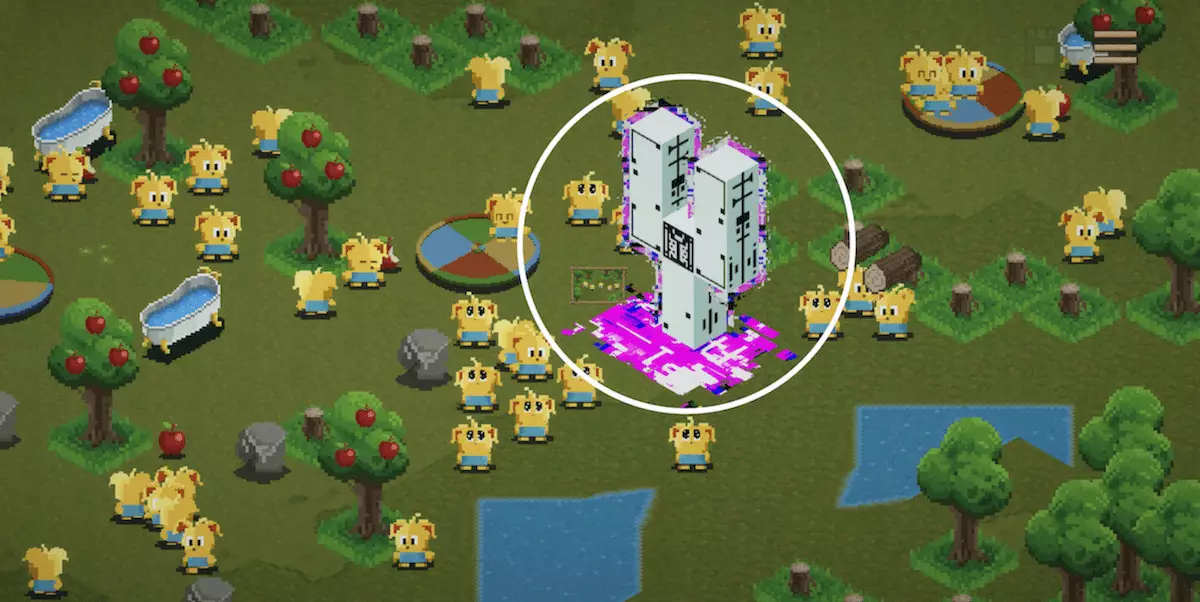The much-anticipated Season 7 of “Black Mirror” has graced our screens with its signature blend of thought-provoking storytelling and technological critique. In a bold move, the series has introduced a mobile game titled “Thronglets,” developed by Netflix’s Night School Studio, which intricately ties into an episode named “Plaything.” This game is not merely a marketing adjunct; it represents a pivotal shift in how narratives are extended in the digital age. By enabling players to engage actively with the story through gameplay, “Thronglets” enhances the viewing experience, allowing fans to delve deeper into the moral complexities symptomatic of the Black Mirror universe.
Gameplay Dynamics: A Morality Tale in a Whimsical Wrapping
At first glance, “Thronglets” might appear to be reminiscent of classic virtual pet games such as Tamagotchi. However, its interface belies a far more sinister undertone. Players are tasked with caring for sentient yellow creatures that exhibit a startling degree of awareness and autonomy. As players nurture these beings, they encounter ethical dilemmas that challenge their instincts and emotions. For instance, in a quest for efficiency, players may need to make harrowing decisions, such as sacrificing a creature for its bones to hasten progress.
This fashionable intertwining of moral ambiguity with gameplay mechanics offers an ironic reflection of human behavior, mirroring the series’ philosophical inquiries into ethical choices. It pushes players to question the trade-offs between efficiency and empathy, deeming them as indispensable parts of the gaming experience. This depth grants “Thronglets” a unique charm that forces introspection while simultaneously providing entertainment.
Netflix’s Evolving Game Strategy: A Step Toward Coherence
Netflix has been navigating the challenging waters of gaming market entry. Historically, its approach has been considered haphazard, introducing a patchwork assortment of games that encompassed indie projects as well as adaptations of beloved franchises. The launch of “Thronglets” marks a significant recalibration of this strategy, aligning more concisely with the company’s overarching themes of storytelling and connection to its original content.
In recent statements, Netflix executives emphasized a commitment to focusing on four core types of games: narrative-driven experiences, multiplayer party games, children’s titles, and mainstream offerings. “Thronglets” falls neatly into the latter category, a strategic choice reflecting the drive to convert popular series into compelling interactive content. This new direction seems promising, especially as demonstrated by the success of “Squid Game: Unleashed,” which achieved remarkable downloads.
Cultural Commentary: The Dark Side of Connectivity
As much as “Thronglets” operates on a surface level of entertainment, the game’s deeper implications urge us to scrutinize our connections with technology and its influences on our lives. Black Mirror has always explored the relationship between humanity and technological innovation—both the potential for upliftment and the dangers of descent into moral chaos. “Thronglets,” in its charming yet macabre design, epitomizes this duality, holding a mirror to our humanity.
By allowing players to interact with sentient pets who mirror aspects of ourselves, the game raises questions about the ethics of life and death in our consumption-driven society. How much are we willing to sacrifice for efficiency in our lives? Can we separate emotional engagement from the mechanistic demands of daily living? These philosophical inquiries make “Thronglets” more than just a game; it becomes a conduit for discourse about modern life’s complexities.
The Future of Interactive Entertainment in Streaming
In an era where streaming services are increasingly venturing into interactive content, the implications of Netflix’s foray into gaming extend beyond just monetization. “Thronglets” heralds a future where mobile games could serve as interactive supplements to traditional storytelling mediums, enriching narratives and deepening engagement.
While the path forward is rife with challenges—from ensuring consistency across platforms to maintaining quality control—Netflix’s venture into narrative games appears to be a worthy endeavor. It showcases their commitment to not only entertain but also provoke thought, positioning “Thronglets” as a crucial component in redefining the relationship between viewers and the stories that captivate them.

